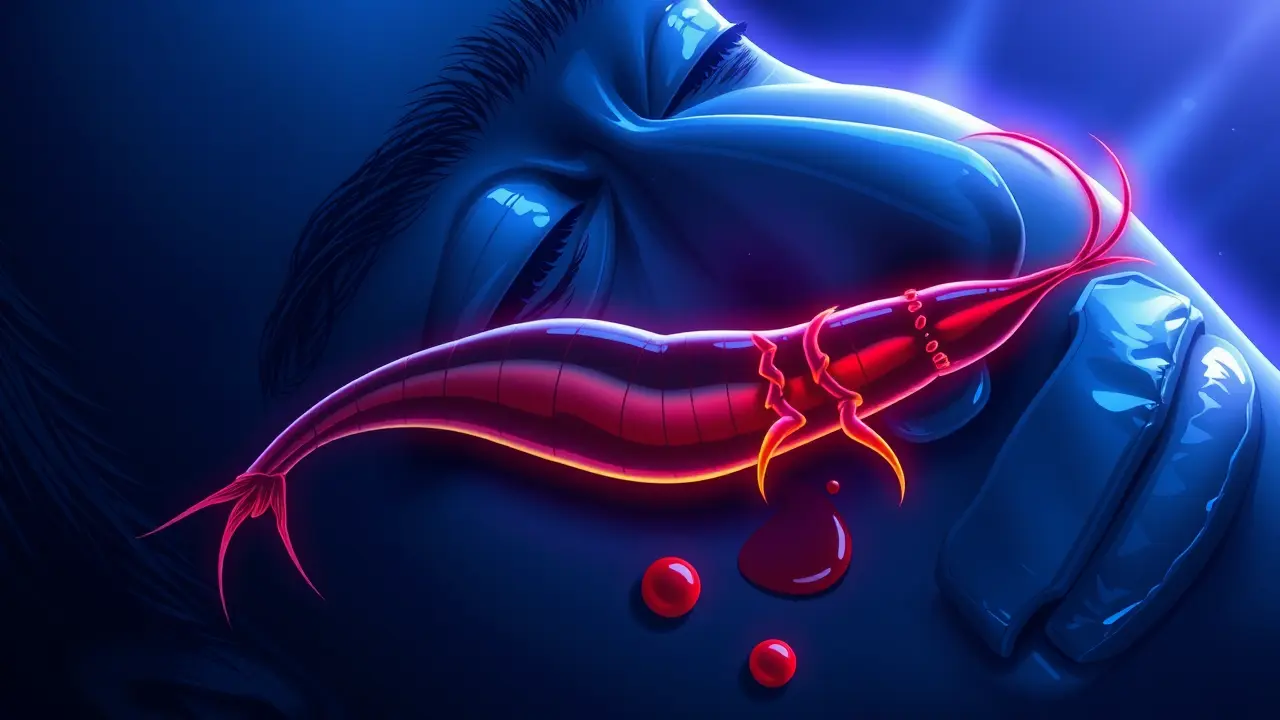
SciencemedicinePublic Health
Doctors Remove Live Leech Causing Chronic Nosebleed in China
KE
1 month ago7 min read1 comments
In a startling case that underscores the intricate and often unsettling intersections of human health and environmental biology, doctors at the First Hospital of Hunan University of Chinese Medicine recently provided a definitive diagnosis for a 38-year-old man plagued by a ten-day ordeal of unremitting nosebleeds: a live leech had taken up residence deep within his nasal cavity. This incident, far from being a mere medical curiosity, opens a fascinating window into the field of parasitology and the unexpected vectors of zoonotic encounters, particularly in regions where freshwater sources are shared with a diverse array of invertebrate life.The leech, a hematophagous annelid worm from the subclass Hirudinea, is a master of stealth, employing local anesthetics in its saliva to numb the attachment site and anticoagulants like hirudin to ensure a continuous flow of blood, perfectly explaining the patient's persistent epistaxis without an initial sensation of pain. Such cases, while rare in urban clinical reports, are documented in medical literature across Southeast Asia and parts of Africa, often linked to the practice of drinking or washing in untreated stream water where juvenile leeches, too small to be noticed, can be inadvertently inhaled.The extraction procedure itself is a delicate maneuver, requiring precision to avoid rupturing the organism, which could lead to secondary infection or anaphylactic reaction from released gut contents; doctors typically employ methods ranging from topical application of saline or lidocaine to encourage detachment to the use of specialized forceps under endoscopic guidance. This event serves as a potent reminder of the ongoing biological dialogue between humans and their ecosystems, a theme increasingly relevant in an era of climate change and habitat encroachment that alters the geographical distribution of species and the dynamics of human-pathogen interactions.From a biotechnological perspective, the very molecules that make leeches a nuisance—their powerful anticoagulants and anesthetics—are the subject of intense research for developing novel pharmaceuticals, illustrating a classic paradigm where a biological threat harbors potential therapeutic gold. This case, therefore, is not just a resolved nasal blockage but a narrative rich with implications for public health advisories in rural communities, the continuous education of medical professionals on parasitic presentations, and the profound, complex ways in which our bodies remain connected to the natural world, for better or worse.
#featured
#leech
#nosebleed
#medical case
#China
#parasitic infection
#otolaryngology
Stay Informed. Act Smarter.
Get weekly highlights, major headlines, and expert insights — then put your knowledge to work in our live prediction markets.
Related News
Comments
Loading comments...
© 2025 Outpoll Service LTD. All rights reserved.